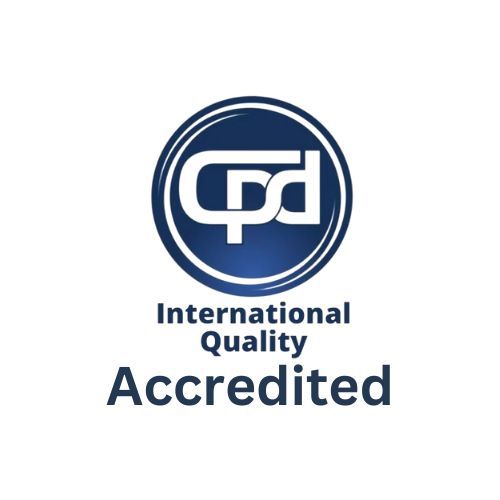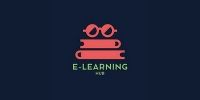Diploma in Economics
- Introduction to Economics:
- Explore the fundamental concepts of economics, including scarcity, choice, opportunity cost, and the basic principles of supply and demand.
- Understand the various economic systems and their implications on resource allocation and distribution.
- Microeconomics:
- Delve into the study of individual economic agents such as consumers, firms, and markets.
- Analyze how these agents make decisions regarding production, consumption, pricing, and resource allocation.
- Macroeconomics:
- Examine the broader economic aggregates such as national income, employment, inflation, and economic growth.
- Understand the role of government policies in influencing macroeconomic variables and stabilizing the economy.
- Economic Policy Analysis:
- Learn to evaluate and critique economic policies implemented by governments and international organizations.
- Gain insights into the impact of fiscal, monetary, and trade policies on economic outcomes and welfare.
- International Economics:
- Explore the theories of international trade and finance, including comparative advantage, exchange rates, and balance of payments.
- Understand the implications of globalization on economies and the challenges of international economic cooperation.
- Applied Economics:
- Apply economic principles and techniques to real-world issues and problems.
- Conduct empirical analysis, economic modeling, and policy simulations to address practical challenges in various industries and sectors.
- Econometrics:
- Develop skills in statistical analysis and econometric methods for analyzing economic data.
- Learn to estimate and interpret economic relationships and test hypotheses using econometric techniques.
- Special Topics in Economics:
- Explore specialized areas of economics such as development economics, environmental economics, health economics, and behavioral economics.
- Gain insights into emerging trends and issues shaping the field of economics.
- Research Project:
- Undertake an independent research project under the guidance of experienced faculty.
- Apply theoretical knowledge and analytical skills to conduct original research and contribute to the advancement of economic knowledge.
- Graduates of the Diploma in Economics program can pursue diverse career opportunities in areas such as banking, finance, consulting, government agencies, international organizations, research institutions, and academia. Common job roles include economists, policy analysts, financial analysts, research associates, and data analysts.
- While a background in economics is beneficial, it is not a prerequisite for enrolling in the Diploma in Economics program. The course curriculum is designed to accommodate students with varying levels of prior knowledge in economics, providing foundational concepts as well as advanced topics.
- Yes, the Diploma in Economics program is available in both online and traditional classroom formats. Online students have access to the same curriculum, resources, and support services as their on-campus counterparts. Online delivery offers flexibility and convenience for individuals balancing work, family, or other commitments.
- The duration of the program may vary depending on factors such as full-time or part-time enrollment, course load, and individual pacing. On average, the Diploma in Economics program can be completed within one to two years of full-time study or equivalent part-time study.
- The Diploma in Economics program distinguishes itself through its comprehensive curriculum covering a wide range of economic theory, principles, and applications. The program emphasizes both theoretical knowledge and practical skills, preparing students for diverse career paths in economics and related fields. Additionally, the program offers opportunities for hands-on learning, research, and professional development through internships, projects, and guest lectures by industry experts.
- Prerequisites may vary for certain sections of the course, depending on the complexity of the topics covered. However, the program is designed to provide a progressive learning experience, building upon foundational concepts before delving into more advanced topics. Students are encouraged to consult with academic advisors or program coordinators for guidance on course selection and prerequisites.
- Transfer credit policies may vary depending on the institution and program requirements. Students interested in transferring credits from other institutions or programs are encouraged to contact the admissions office or program coordinator for information on credit transfer policies, procedures, and eligibility criteria.
- Interested individuals can apply for the Diploma in Economics program through the institution's admissions office or online application portal. Application requirements typically include transcripts, letters of recommendation, a statement of purpose, and any additional documents requested by the institution. Applicants are encouraged to review the application guidelines and deadlines carefully and submit all required materials in a timely manner.
- Students enrolled in the Diploma in Economics program have access to a range of support services to facilitate their academic and personal success. These services may include academic advising, tutoring, career counseling, library resources, technical support, and student organizations. Additionally, faculty members and staff are available to provide guidance, mentorship, and assistance throughout the duration of the program.
- Financial aid options may vary depending on the institution and eligibility criteria. Students enrolled in the Diploma in Economics program may be eligible for scholarships, grants, loans, work-study opportunities, or other forms of financial assistance. It is recommended that students explore available financial aid options and contact the institution's financial aid office for information on application procedures, deadlines, and eligibility requirements.
Course Curriculum
About Course
Product Overview: Diploma in Economics
🎓 Introduction to the Course: The Diploma in Economics is a comprehensive program designed to provide students with a strong foundation in economic theory, principles, and practical applications. This course equips individuals with the knowledge and skills necessary to understand and analyze economic phenomena, make informed decisions, and contribute effectively to various sectors including business, finance, government, and academia.
📚 Course Sections:
- Introduction to Economics:
- Explore the fundamental concepts of economics, including scarcity, choice, opportunity cost, and the basic principles of supply and demand.
- Understand the various economic systems and their implications on resource allocation and distribution.
- Microeconomics:
- Delve into the study of individual economic agents such as consumers, firms, and markets.
- Analyze how these agents make decisions regarding production, consumption, pricing, and resource allocation.
- Macroeconomics:
- Examine the broader economic aggregates such as national income, employment, inflation, and economic growth.
- Understand the role of government policies in influencing macroeconomic variables and stabilizing the economy.
- Economic Policy Analysis:
- Learn to evaluate and critique economic policies implemented by governments and international organizations.
- Gain insights into the impact of fiscal, monetary, and trade policies on economic outcomes and welfare.
- International Economics:
- Explore the theories of international trade and finance, including comparative advantage, exchange rates, and balance of payments.
- Understand the implications of globalization on economies and the challenges of international economic cooperation.
- Applied Economics:
- Apply economic principles and techniques to real-world issues and problems.
- Conduct empirical analysis, economic modeling, and policy simulations to address practical challenges in various industries and sectors.
- Econometrics:
- Develop skills in statistical analysis and econometric methods for analyzing economic data.
- Learn to estimate and interpret economic relationships and test hypotheses using econometric techniques.
- Special Topics in Economics:
- Explore specialized areas of economics such as development economics, environmental economics, health economics, and behavioral economics.
- Gain insights into emerging trends and issues shaping the field of economics.
- Research Project:
- Undertake an independent research project under the guidance of experienced faculty.
- Apply theoretical knowledge and analytical skills to conduct original research and contribute to the advancement of economic knowledge.
🔍 FAQs (Frequently Asked Questions):
1. What are the career prospects after completing the Diploma in Economics?
- Graduates of the Diploma in Economics program can pursue diverse career opportunities in areas such as banking, finance, consulting, government agencies, international organizations, research institutions, and academia. Common job roles include economists, policy analysts, financial analysts, research associates, and data analysts.
2. Is a background in economics required to enroll in this course?
- While a background in economics is beneficial, it is not a prerequisite for enrolling in the Diploma in Economics program. The course curriculum is designed to accommodate students with varying levels of prior knowledge in economics, providing foundational concepts as well as advanced topics.
3. Can this course be pursued online?
- Yes, the Diploma in Economics program is available in both online and traditional classroom formats. Online students have access to the same curriculum, resources, and support services as their on-campus counterparts. Online delivery offers flexibility and convenience for individuals balancing work, family, or other commitments.
4. How long does it take to complete the Diploma in Economics program?
- The duration of the program may vary depending on factors such as full-time or part-time enrollment, course load, and individual pacing. On average, the Diploma in Economics program can be completed within one to two years of full-time study or equivalent part-time study.
5. What sets this program apart from similar courses in economics?
- The Diploma in Economics program distinguishes itself through its comprehensive curriculum covering a wide range of economic theory, principles, and applications. The program emphasizes both theoretical knowledge and practical skills, preparing students for diverse career paths in economics and related fields. Additionally, the program offers opportunities for hands-on learning, research, and professional development through internships, projects, and guest lectures by industry experts.
6. Are there any prerequisites for specific sections of the course?
- Prerequisites may vary for certain sections of the course, depending on the complexity of the topics covered. However, the program is designed to provide a progressive learning experience, building upon foundational concepts before delving into more advanced topics. Students are encouraged to consult with academic advisors or program coordinators for guidance on course selection and prerequisites.
7. Can I transfer credits from other institutions or programs?
- Transfer credit policies may vary depending on the institution and program requirements. Students interested in transferring credits from other institutions or programs are encouraged to contact the admissions office or program coordinator for information on credit transfer policies, procedures, and eligibility criteria.
8. How can I apply for the Diploma in Economics program?
- Interested individuals can apply for the Diploma in Economics program through the institution’s admissions office or online application portal. Application requirements typically include transcripts, letters of recommendation, a statement of purpose, and any additional documents requested by the institution. Applicants are encouraged to review the application guidelines and deadlines carefully and submit all required materials in a timely manner.
9. What support services are available for students enrolled in the program?
- Students enrolled in the Diploma in Economics program have access to a range of support services to facilitate their academic and personal success. These services may include academic advising, tutoring, career counseling, library resources, technical support, and student organizations. Additionally, faculty members and staff are available to provide guidance, mentorship, and assistance throughout the duration of the program.
10. Is financial aid available for students enrolled in the program?
- Financial aid options may vary depending on the institution and eligibility criteria. Students enrolled in the Diploma in Economics program may be eligible for scholarships, grants, loans, work-study opportunities, or other forms of financial assistance. It is recommended that students explore available financial aid options and contact the institution’s financial aid office for information on application procedures, deadlines, and eligibility requirements.
The Diploma in Economics program offers a comprehensive and flexible learning experience for individuals seeking to develop their understanding of economic principles and applications. Whether pursuing career advancement, academic enrichment, or personal interest, this program equips students with the knowledge, skills, and opportunities to excel in diverse fields and make meaningful contributions to society.
Course Content
Chapter 01 Basics of Economics
Basics of Economics
00:00
Chapter 02 Understanding How Economists use Models and Graphs
Chapter 03 The Economy and Economics
Chapter 04 Capitalism
Chapter 05 Deciding what to Produce and Market
Chapter 06 Inflation, Central banks and Monetary policy
Student Ratings & Reviews



